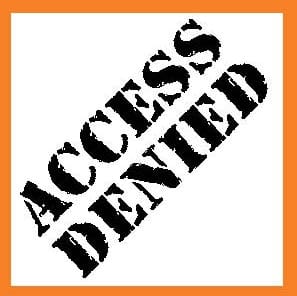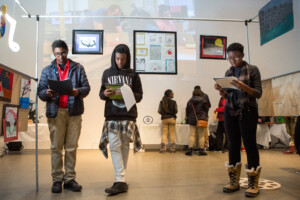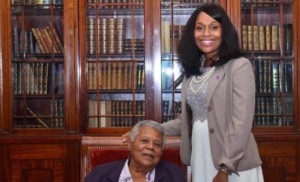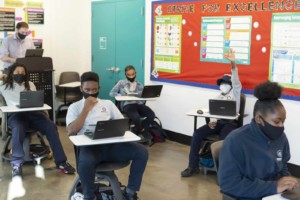Access Denied
I’m a proud graduate of a large Midwestern university’s English language program. All graduates of the program nationwide have one goal in common: protect public school children from the evils of the English language.
If you’re not familiar with the language or if you operate in the real world outside of K-12 education, you might not be aware of the dangers that public school children face every time they have access to words. As it turns out, letters can be formed into words . . . some of them bad words. Those bad words can be turned into bad thoughts. Bad thoughts = bad students ∴ language safety protocols were not in place. That can’t happen. Not on our watch. Those dangers must be stopped, and at all costs. My crowd has the training and expertise to do it. You should not get in our way, and . . . to put it politely . . . who are you to question us? (See: degree, training, expertise.)
You should be aware that much of our English language funding depends on us not teaching children these bad language things. We take this to mean they can’t look at it, hear it, smell it, sense it, or even know it exists.
Our plan is simple: block access to the language.

It’s the only feasible way it can be done. We are waiting for other languages to follow suit, but heretofore, no takers. Other languages and their native speakers may have seen great advances in math and science and world languages like English (weird, we know), but their language protective services lag way behind ours. Almost to the point that . . . they don’t care or are not even worried.
These are the steps we’ve taken to protect our public school children: First off, the dictionary had to go. Seriously, have you looked at some of the words in there? They could be arranged in any sort of order. You could make directions for constructing a nuclear bomb just from the words in the dictionary. Next, the collected parables of Anonymous had to be blocked. We can’t give Anon access to our public school children, especially between the hours of 7:30 a.m. and 3:30 p.m.
Then by logical extension, we had to block all the other authors, as well. I mean, sure, some guy said he was Hemingway, but we have no way to verify that. In addition, there’s no telling what some editor, printer, or ghost writer stuck in there. That distance between a trusted author’s pen and the school textbook is the Wild Wild West. Are you still with me? The slope is indeed slippery.
This is serious. It’s not just words. Language predators use anagrams and acrostics and pantomime that are easily missed by adults but readily pick up by children. Diabolical! No need to fear, though. Our trusted whack-a-mole blocking techniques will keep our children safe.
Some philanthropist suggested that we teach students what’s acceptable and what’s not acceptable in our language (duh, now who’s not in the real world?), but that’s not part of our curriculum. (And it’s certainly not why we studied the English language.) If public school students access language for mere seconds while we’re trying to teach language citizenship, that might let their lizard brains take over.
Then bye bye funding.
Unless, of course, their parents sign a waiver. Then it’s all a green light.
Okay, I must apologize. I’m not sure where my mind is, but I have made two consistent typos here. The editor may catch it, but you can simply do a <find and replace> for “English language” with “Internet technology.” What was absurd will now make sense now. Mea Culpa.
If you are unsure about CIPA facts vs. CIPA myths, check out these two links:
- http://stephenslighthouse.com/2011/04/26/cipa-and-blocking-sites/
- http://kyedtech.com/blog/archives/498
It’s imperative that we turn our young digital natives into digital citizens, and that can only be done by making their internet and technology use relevant to the real world.
For more wall etchings, check out A Vision of Students Today: http://youtu.be/dGCJ46vyR9o







Shu
this Adam Renfro -guy's a genius.
Adam Renfro
Thanks, Shu! I've picked up a lot from my web friends.